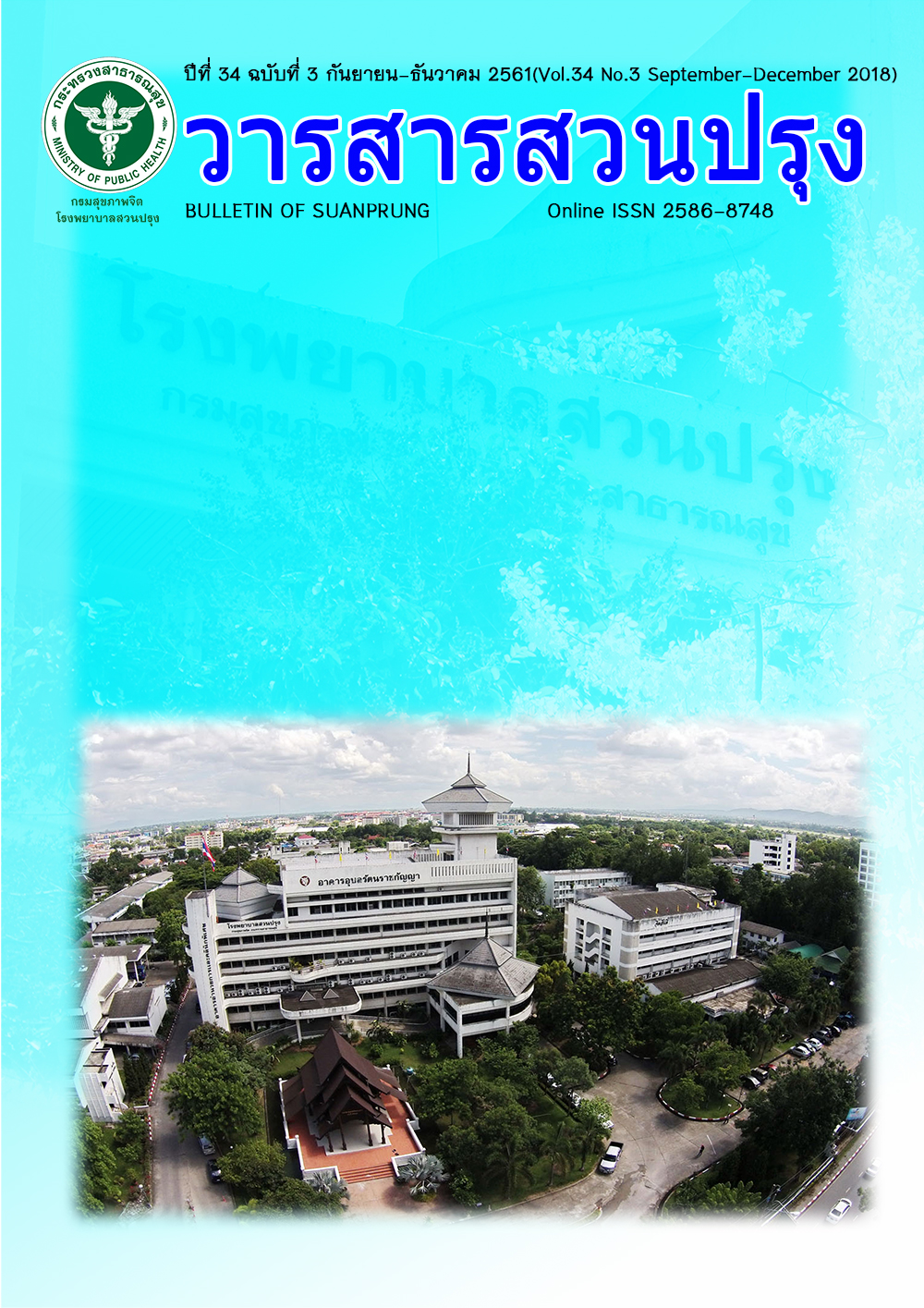Relationship between Perception of Autistic Child Behavior Problems, Parental Self-efficacy, and Psychological Distress
Main Article Content
Abstract
Objective: To study the relationship between perception of autistic child behavior problems, parental self-efficacy, and parental psychological distress
Materials and method: This was a cross-sectional descriptive research. Data were collected from 119 biological mothers and fathers who had autistic children aged between 3 – 12 years old (febuary-may 2017). They also identified themselves as the main caregivers. Correlation and Multiple Regression Analysis were conducted.
Results: Our findings showed that perception of autistic child behavior problems was significantly positively correlated with stress (r = .30), depression (r = .24), and anxiety (r = .28). Parental self-efficacy was significantly negatively correlated with stress (r = -.24) and depression (r = -.25). Perception of autistic child behavior problems and parental self-efficacy accounted for the total variance of stress (R2 = .12, p < .01) and depression (R2 = .10, p < .01). Perception of autistic child behavior problems significantly predicted anxiety (p < .01).
Conclusion: Perception of autistic child behavior problems and parental self-efficacy both effected stress and depression of the parents. However, only perception of autistic child behavior problems effected parents’ anxiety.
Keywords: Self-efficacy, Parents, Psychological distress, Autistic
Article Details
บทความหลังผ่านการปรับแก้จากกองบรรณาธิการแล้ว เป็นลิขสิทธ์ของวารสารจิตเวชวิทยาสาร โรงพยาบาลสวนปรุง กรมสุขภาพจิต กระทรวงสาธารณสุข ห้ามเผยแพร่เพื่อประโยชน์ทางการค้าโดยไม่ได้รับอนุญาต แต่อนุญาตให้เผยแพร่บทความดังกล่าวเพื่อประโยชน์ทางการศึกษาแก่ประชาชนทั่วไป ทั้งนี้กองบรรณาธิการไม่จำเป็นต้องเห็นด้วยกับบทความหรือข้อคิดเห็นใดๆ ที่ปรากฏในวารสารสวนปรุง

